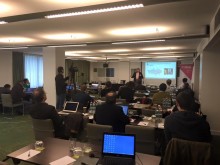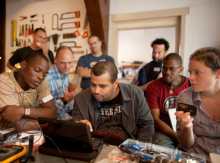Login Status
-
Free text
UPCOMING EVENTS:
 From August 18 to October 11, 2026; submissions due February 19.
From August 18 to October 11, 2026; submissions due February 19.FILE – Electronic Language International Festival is now accepting project submissions and invites artists, researchers, creators, and developers to participate in its next edition. An international reference in the fields of art, technology, and innovation, FILE will take place in … Continue reading →
 Wrocław University of Environmental and Life Sciences, 4th of Match 2026
Wrocław University of Environmental and Life Sciences, 4th of Match 2026The international conference “Cross-border cooperation in the era of challenges and transformation – space, energy, climate, culture” will be held on 4 March 2026 at the Wrocław University of Environmental and Life Sciences, in Wrocław, Poland. The conference will explore key issues facing border regions, from … Continue reading →
Topic: intellectual property rights
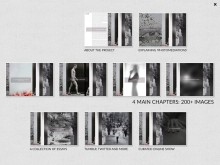
Photomediations: An Open Book is the most eye-catching result of Europeana Space Open and Hybrid Publishing Pilot, that will be celebrated and empowered within the Hack the Book! Festival organized in Athens in January 2016. But which had been the … Continue reading
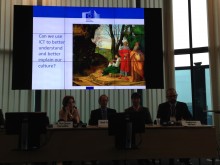
The policies presented by RICHES are related to the need to develop and use a common taxonomy, innovation in copyright frameworks and open access to data and information, and co-creation practices to facilitate innovation in the cultural heritage sector – all with the purpose of overcoming a range of barriers and constraints. The event was preceded in the morning by a Networking Session where invited participants in EC-funded projects discussed aims and achievements in the light of establishing new, profitable collaborations and synergies. Continue reading

Bert Lemmens from PACKED, Peter Bubestinger from the Austrian Mediathek and Tessa Fallon from MediaArea presented the PREFORMA project, the work done towads the adoption and standardisation of FFv1 as a digital preservation format and MediaConch, at the FIAT/IFTA World Conference 2015. The Conference took place in Vienna from October 7th until October 10th 2015 and this year theme was: “Audiovisual Culture, a bridge to the future”. Continue reading
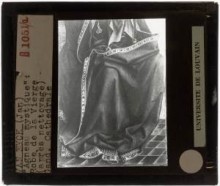
In a recently published post on the Cultural Studies Leuven blog, Prof. Fred Truyen (KU Leuven), coordinator of the E-Space project’s photography pilot, offers some reflections on his experience with Intellectual Property Rights (IPR) in the successfully concluded EuropeanaPhotography project… Continue reading

Erwin Verbruggen from the Netherlands Institute for Sound and Vision presented PREFORMA at the EBU Open Source Meetup at IBC 2015 in Amsterdam, which featured a series of 5 minutes lightning talks on open source projects and use cases from the broadcast domain. The presentation focused on the media conformance checking of AV files. Continue reading

Prof. Fred Truyen of KU Leuven recently published an interesting article on his Digital Culture blog, under the title “Europeana Space Photo pilot: Innovate your photographic heritage … and your future business!” The article tells the commitment the E-Space project is devoting through its Photo Pilot to demonstrating a range of possibilities offered by apps, Europeana API’s and a multitude of tools developed by the open source community to come up with innovative models involving historical and present-day photography, with monetising potential and investment appeal. Continue reading

The Content Space will then directly link to the Technical Space currently under development. The materials of the Content Space are curated by the IPR experts of Exeter University and, as a part of the Content Space, the associate partner Open Knowledge is building the Open Content Exchange Platform. Continue reading
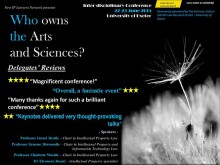
by Catherine Cummings, Research Fellow (RICHES), University of Exeter From the shape of guitars, fashion brands, parody, dance, disability and re-mixing to museum collections, digitisation, data-mining and folklore, this interdisciplinary conference addressed the many varied and complex relationship between Intellectual … Continue reading


